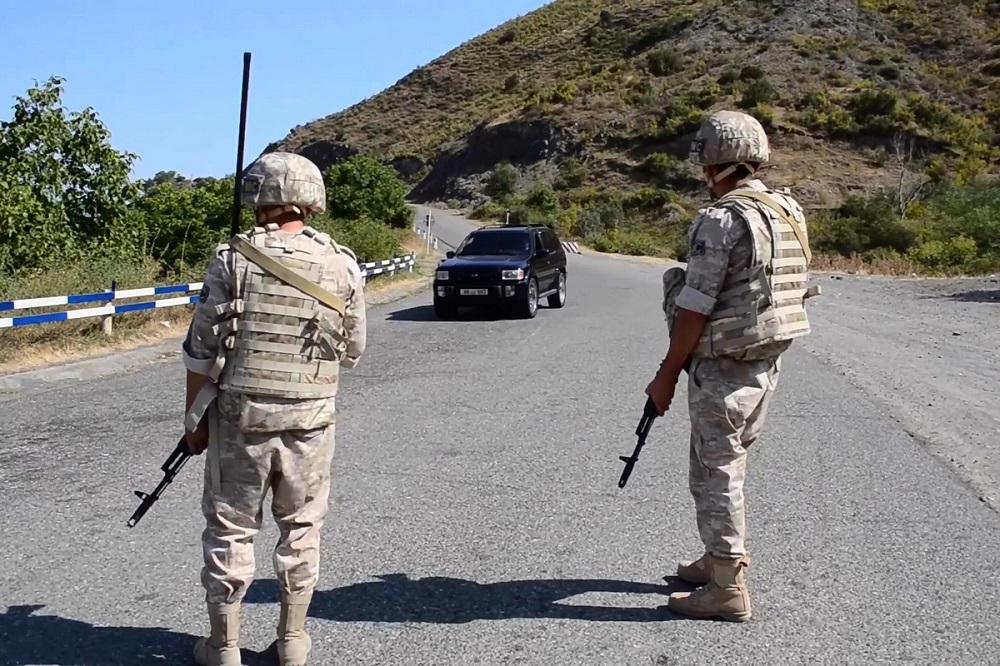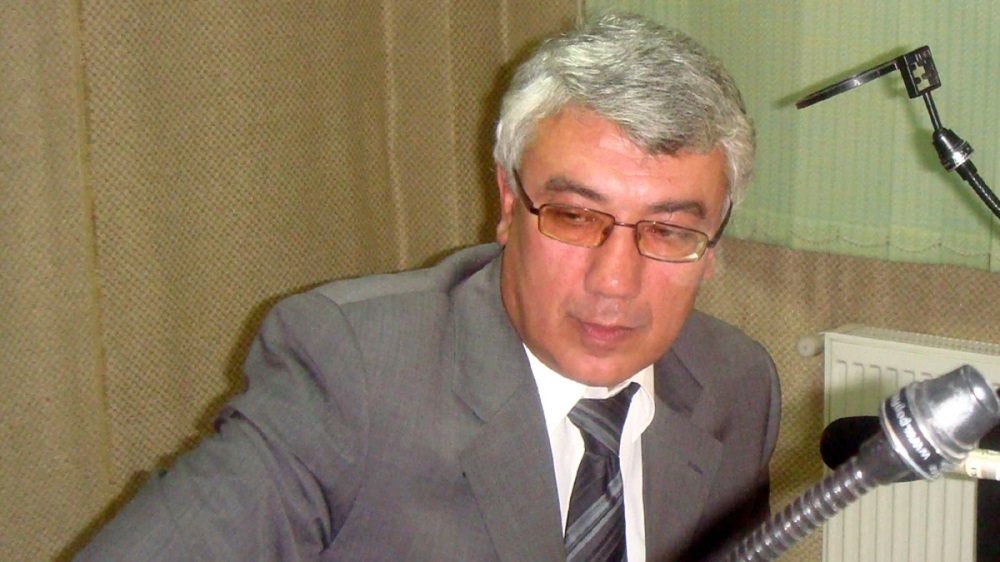Domestic policy
Op-ed: USA and France are competing with Russia for Armenia


“The US and France, who consider themselves losers in the geopolitical struggle, are trying to create a provocation by raising the long-forgotten issue of status”, Eldar Namazov, an aide to the Azerbaijani president in 1993-1999, said in an interview with ARA. He shared his opinion on the definition of borders between Azerbaijan and Armenia, incidents between the parties, attempts by the United States and France to create a provocation in the post-conflict period and the activities of Russian peacekeepers.
- Normalization of Armenian-Turkish relations: prospects and risks
- Customs payments for Iranian trucks: what is happening at the Armenian-Azerbaijani border
“States that consider themselves to be losers interfere with the process”
“The plans prepared by them for decades regarding the solution of the Karabakh problem, the post-conflict period as well as states that are members of the OSCE Minsk Group, have gone into the archives of history. They did not expect such a brilliant victory from Azerbaijan, and such a difficult situation in which Armenia found itself. They also came as a surprise to such a large role in the process that Turkey played and the creation of a military alliance between Azerbaijan and Turkey. Therefore, those who are concerned about such a course of processes, who consider themselves to be losers in this process from the point of view of foreign policy, the states create certain obstacles and make provocative steps”, Namazov said.

In his opinion, from a geopolitical point of view, the winners are Azerbaijan and Turkey, and, to a certain degree Russia, taking account. “But Russia also did not expect such a bright military victory of Azerbaijan, and such a deplorable situation for its military ally. Moscow did not want the formation of a military alliance Azerbaijan-Turkey, such a large role for Turkey in this process, the creation of a joint monitoring center in Karabakh. I would also include Iran among the countries feeling anxiety about what is happening”, he said.
The former presidential aide stressed that the United States and France are waging a geopolitical struggle with Russia for Armenia.
“After the pro-Western forces came to power in Armenia, Russia took serious steps to further tie this country to itself and make it as dependent on itself as possible.
But these very steps seem to create conditions for Armenia to integrate even more with the West. Large economic aid to Armenia – $ 2.6 billion from the European Union – shows that the collective West, led by France, is trying to free Armenia from economic and then political and military dependence on Russia, and they believe that it will be better for the citizens of this country. That is why the diplomats of the United States and France make such provocative statements”.
“Armenia seems like a geopolitical project, not a state”
Regarding new challenges in the post-conflict period, the political scientist noted that Armenia is not in a hurry to fulfill all the requirements of the trilateral statement:
“Armenia especially resists in the issues of demarcation and delimitation of borders, mutual recognition of territorial integrity, opening of a corridor that will connect the main part of Azerbaijan with Nakhichevan and some other issues. Azerbaijan is forced to take certain steps in connection with such actions of Armenia”.
The political scientist draws attention to “Armenia’s dependence on Russia” and notes that this country “looks more like a geopolitical project than a sovereign state”:
“Imagine, this state, one might say, does not have any of the attributes of a sovereign country. Its borders are guarded by Russia, the defense system is dependent on the Russian defense system. Armenia, on its own, is not capable of either buying weapons or preparing an efficient army. This also lies with Russia. In the economic field, all major sectors are controlled by Russian companies. Armenia does not pursue an independent foreign policy. From the point of view of the attributes affirming statehood, Armenia looks more like a geopolitical project than a state”.
Namazov also noted that the unconstructive behavior of Armenia in the issue of determining the borders also causes misunderstanding:
“The Armenians still claim that they do not recognize the Soviet borders, they say, these are administrative borders. But when both Armenia and Azerbaijan were part of the CIS, they signed a corresponding agreement. In that document, the borders existing under the USSR and the states entering the Commonwealth were taken as a basis, they recognized these borders and the territorial integrity of each other”.
“The Armenians also do not seem to understand that in every country there is a border strip near the border, where the entrance is not always open even for its own citizens. And the Armenians graze their livestock on this strip, then complain to the UN, OSCE about how their cows crossed the border towards Azerbaijan and now they are not allowed to return the animals. One gets the impression that they do not know the concept of a border and a border strip”, added the former aide to the President of Azerbaijan.
Seven villages of Gazakh region and one village of Nakhichevan
“I am sure that seven villages of the Gazakh region (former exclaves of Azerbaijan on the territory of Armenia) and the Nakhichevan village of Kyarki will be returned to Azerbaijan. It is no coincidence that in the primary version of the trilateral statement, and this version was published by the Armenians, there was a point regarding these villages. But in the latest version published by the Kremlin, this clause was already missing. Turkish President Recep Tayyip Erdogan also expressed his opinion about these villages.
All this shows that there were quite serious discussions in connection with these villages, and certain decisions were made. Apparently, this decision was delayed a little. Also noteworthy is the fact that Russian border guards have established posts and are building barracks in the direction of these villages. Everyone understands that Russia will also take control of the roads leading to these villages”.
Russian peacekeepers in Karabakh
The political scientist assesses the activities of the Russian peacekeeping contingent in Karabakh negatively. In his opinion, the further stay of the peacekeepers in the region after the expiration of a five-year period depends entirely on the decision that Azerbaijan will make, because “the decision of the Armenian side, which depends on Russia, is already predetermined”:
“Considering the dissatisfied statements of the Azerbaijani President, his repeated assessments of the actions of the peacekeepers, the recent statement of the Azerbaijani Defense Ministry regarding the peacekeeping contingent and the appeal to the Russian Ministry of Defense, continued provocative steps on their part to this day, Azerbaijan should take serious steps against these forces. I am sure that Azerbaijan has such opportunities. The Azerbaijan-Turkey Union has already shown itself in the region from the side of the power center, international law is also on the side of our country”.
